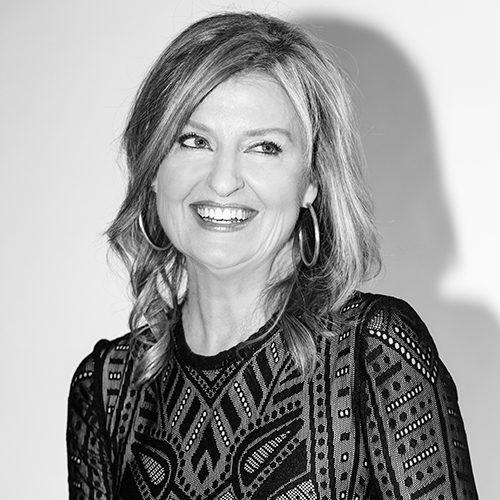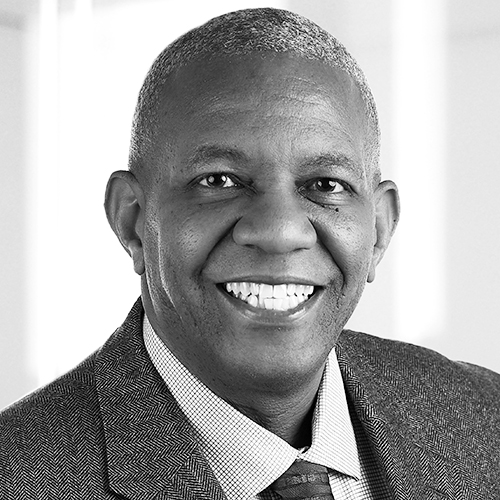Stephen Finkel’s responsibilities at FJC Security Services are all-encompassing. He leads a team of forty employees in the finance department, where they determine the costs for proposals ranging from massive federal or city projects—where wage rates might be subject to a host of regulations—to local ones. Finkel oversees FJC’s corporate strategy, financial management, reporting and planning, taxation, bids and proposals, union matters, audit, compliance, acquisitions, collective bargaining agreements, the Service Contract Act, and New York Labor Law 230. He also provides guidance for information technologies strategies and human resources along with employee benefits and the Affordable Care Act.
During the seventeen years that Finkel progressed from assistant controller to his present position, FJC Security Services has grown from a $40 million company to a $300 million one. He attributes the company’s growth to its model of creating leaders, not just workers, among its employees. “The people that I have are willing to grow and really take the next project and not just stay static,” he says.
A Secret Project
Guiding a company through an ownership transition is always a challenge, and it is one that has kept Stephen Finkel, senior vice president and chief financial officer of FJC Security Services Inc., busy outside of his regular office hours.
“I spent my entire summer preparing the due diligence, and I could not involve anyone in my company in the acquisition of our own company,” Finkel recalls. “You have to work completely off hours, secretly, and have a poker face in the office because you have to keep everybody working and not have people flee a company that might be sold. It’s definitely a challenge.”
Finkel is finishing work on the sale of FJC Security Services to Allied Universal, which occurred on October 1 of 2016. Allied Universal is a $5.5 billion company with approximately 150,000 employees that, like FJC, specializes in all types of security services, including providing security professionals and electronic security. The transition was completed March 31, and afterwards, Finkel was named vice president of finance for the FJC division of Allied Universal.
Finkel’s management philosophy is to give his supervisory employees a full, 360-degree view of a project instead of just limiting their understanding to the one aspect of the project on which they are working. Finkel then asks them to explain it back to him so that he is sure they fully understand it. Once he’s sure they do, he asks them to create a flow chart that they could use to pass the information along to their employees.
“If you show them the finish line, where the goals and objectives are, and reverse engineer the project, it really seems to work out well,” Finkel says. “I’ve been able to grow employees through the years. I’ve taken interns, and over the years, they became senior directors of compliance or controllers by that method. You relate with each one differently, and you find their strength and teach around their strength. It’s been very successful.”
Finkel uses standard methods for recruiting employees, such as looking for interns from local colleges, taking out job ads, or relying on headhunters. During the recruitment process, Finkel seeks out a certain type of person, in addition to someone who has the right expertise. “We look to the core of the person,” he says. “You can definitely teach them, but you want to see if they are coachable and have the right core—that they can grow and develop—and not be a person there just for the day job. I’ve been pretty fortunate in choosing the right people around me.”
Ensuring that FJC complies with the myriad of regulations in the states in which it operates is beyond challenging, Finkel says. His department must keep track of changing overtime and minimum and prevailing wage rates, collective bargaining agreements, healthcare reform, and tax changes. “The guard industry is a highly regulated staffing industry because we have federal and city contracts,” Finkel explains. “When you are dealing with a high-volume, low-margin business, you have to be careful on every increase. These have dramatic impacts on a company like ours.”
Finkel attributes his success in finance to his earlier experience at FJC when he attended executive meetings and worked with other vice presidents of the company to make finance more than just a support function. “When I first started, there was a big divide between operations and finance,” Finkel recalls. Finance helped to make FJC more profitable by training employees throughout the company in how to be more efficient. “I feel like finance touches everything,” he says. “We became part of a team instead of siloed. We gave them the proper tools and support—which they never had before—and that’s what we’re really doing now on a wider scale. Instead of just the vice presidents, now it’s down to the operators.”
Between August 2013 and May 2016, Finkel obtained a master’s degree in organizational leadership at Quinnipiac University, in addition to working at FJC. This enabled him to bring a leadership coach into FJC to help create leaders from within. He also encourages his employees to become certified fraud examiners. “I had two of my employees get that, and it really gave them instant credibility,” Finkel says. “When we had auditors come in, we prepared everything for them. We’ve been audited by the best, and each time we passed the audits with flying colors.” In 2014, Finkel won the CFO of the Year award for a private company with more than $50 million in revenue from Long Island Business News magazine.
When supervisors train their employees to be managers, those employees have the skills to be promoted if their supervisors leave the company. “Creating a good farm system is very important,” Finkel explains. “It’s the way that you work with them. Instead of just dumping work on them, you also give them their goals to achieve. You have to listen to them. It’s a two-way street. Even though you’re their boss, you also have to be their mentor.”
TD Bank, America’s Most Convenient Bank, is one of the ten largest banks in the United States, providing more than 8.9 million customers with a full range of retail, small business, and commercial banking products and services at more than 1,275 convenient locations throughout the Northeast, Mid-Atlantic, Metro DC, the Carolinas, and Florida. In addition, TD Bank and its subsidiaries offer customized private banking and wealth management services through TD Wealth, and vehicle financing and dealer commercial services through TD Auto Finance.
Contact Emily Stoddard | SVP | Middle Market Team Lead in NYC at 646-981-4270 if she can assist you with your banking needs.

